As a BetterHelp affiliate, we receive compensation from BetterHelp if you purchase products or services through the links provided
An anxiety attack can manifest differently in everyone. It has several physical symptoms, including breathlessness, sweating, shaking, headaches, and an irregular heartbeat. It also has mental symptoms like nervousness, worrying, tearfulness, fear, and difficulty concentrating. It also manifests itself in several behavioral changes like a fear of new things, an inability to enjoy pleasant moments, fear of new experiences, and compulsive behavior,
Anxiety attacks build gradually when a stressor is present. They have similar symptoms and related causes to panic attacks, making many people think it’s the same thing. The anxiety subsides once the stressor is gone, whereas panic attacks appear without a trigger and unexpectedly.
It’s important to know effective ways that will help you with how to calm anxiety attack.
Understanding Anxiety Attacks: Unraveling the Mystery of Overwhelming Stress
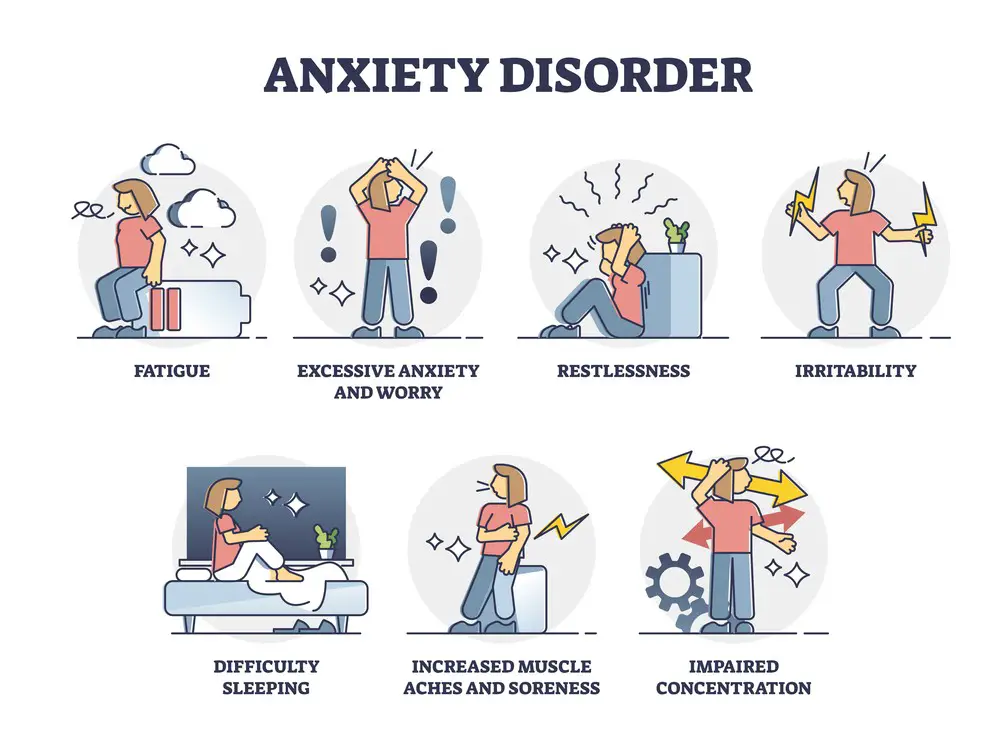 Anxiety attacks, often referred to as panic attacks, can be intense and frightening experiences. Imagine feeling fine one moment, and the next, you’re engulfed in a wave of uncontrollable anxiety. Your heart races, your breath becomes shallow, and the room seems out of control. This is the reality for those who experience anxiety attacks. They occur when a surge of overwhelming anxiety and fear suddenly takes over, typically without warning and sometimes with no apparent trigger.
Anxiety attacks, often referred to as panic attacks, can be intense and frightening experiences. Imagine feeling fine one moment, and the next, you’re engulfed in a wave of uncontrollable anxiety. Your heart races, your breath becomes shallow, and the room seems out of control. This is the reality for those who experience anxiety attacks. They occur when a surge of overwhelming anxiety and fear suddenly takes over, typically without warning and sometimes with no apparent trigger.
Symptoms of Anxiety Attacks The symptoms of an anxiety attack can vary from person to person but commonly include:
- Palpitations or a pounding heart
- Sweating
- Trembling or shaking
- Shortness of breath or a feeling of being smothered
- A choking sensation
- Chest pain or discomfort
- Nausea or abdominal distress
- Feeling dizzy, unsteady, lightheaded, or faint
- Chills or heat sensations
- Paresthesia (numbness or tingling sensations)
- Derealization (feelings of unreality) or depersonalization (being detached from oneself)
- Fear of losing control or “going crazy”
- Fear of dying
Causes of Anxiety Attacks Understanding what triggers an anxiety attack is as complex as the experience itself. Causes can include:
- Genetic Factors: A family history of anxiety disorders can increase the risk.
- Stress: Significant life changes, such as a job loss or a loved one’s death, can be triggering.
- Medical Conditions: Certain conditions like thyroid problems or heart arrhythmias can mimic anxiety attack symptoms.
- Phobias: Intense fears of specific situations or objects can provoke attacks.
- Substance Use: Caffeine, alcohol, and drugs can exacerbate anxiety.
Recognizing these symptoms and causes is crucial. It’s the first step toward managing the attacks, empowering you to identify the signs early and respond proactively.
Preventing Anxiety Attacks: Building a Foundation for Resilience
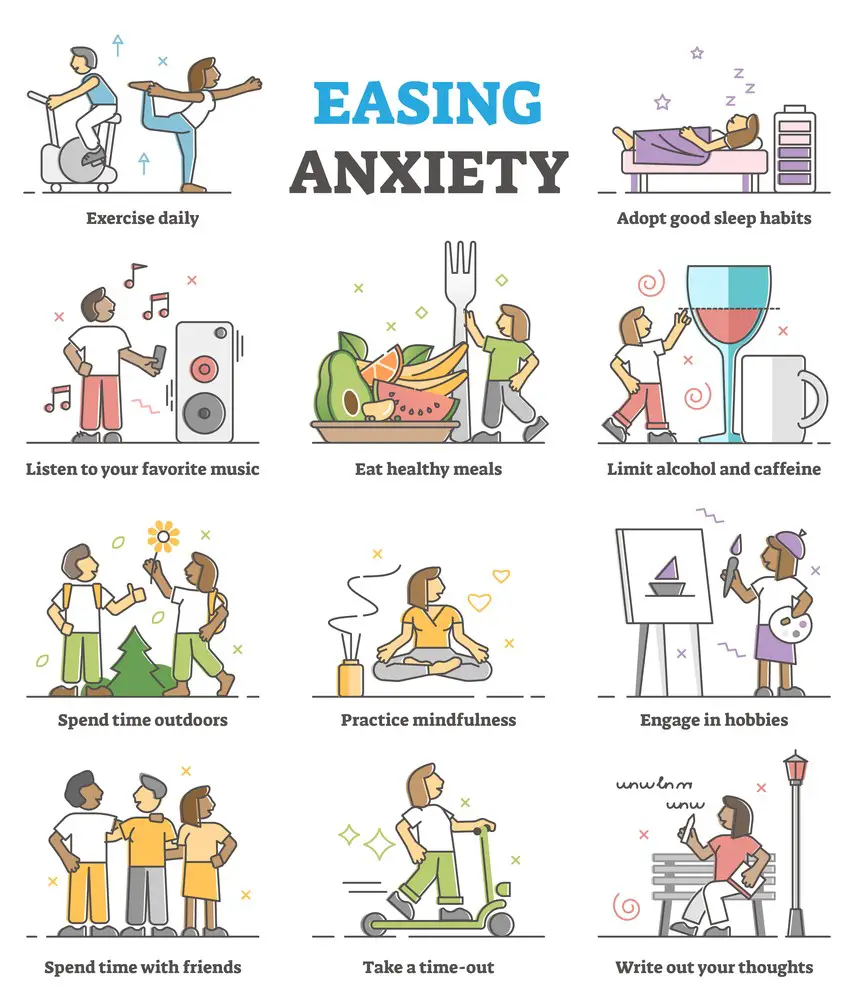 While it’s not always possible to prevent anxiety attacks entirely, there are proactive measures you can take to reduce their likelihood and mitigate their intensity. Building a lifestyle that supports mental health can serve as your first line of defense against anxiety.
While it’s not always possible to prevent anxiety attacks entirely, there are proactive measures you can take to reduce their likelihood and mitigate their intensity. Building a lifestyle that supports mental health can serve as your first line of defense against anxiety.
Regular Physical Activity Exercise is a powerful stress reducer. It can help manage the body’s stress hormones, such as adrenaline and cortisol, and stimulate the production of endorphins, natural painkillers, and mood elevators. Aim for at least 30 minutes of moderate exercise most days of the week.
Balanced Diet: What you eat significantly impacts how you feel. A diet stabilizing blood sugar levels and providing a steady energy source is ideal. Focus on:
- Whole grains
- Lean protein
- Omega-3 fatty acids found in fish
- Fresh fruits and vegetables
- Adequate hydration
Avoid excessive caffeine and sugar, which can increase anxiety symptoms.
Adequate Sleep Sleep and anxiety have a bidirectional relationship. Anxiety can disrupt sleep, and lack of sleep can lead to increased anxiety. Adults should aim for 7-9 hours of quality sleep per night. Establishing a soothing bedtime routine and ensuring a comfortable sleep environment can help.
Mindfulness and Relaxation Techniques Practices such as meditation, deep-breathing exercises, and yoga can reduce stress and enhance feelings of relaxation and emotional well-being. They help you focus on the present moment, making it easier to manage stress and anxiety.
Consistent Routine Establishing a daily routine can provide a sense of stability and predictability, which can be calming in a world that often feels chaotic. Include regular times for meals, work, relaxation, and sleep.
By adopting these strategies, you can build a strong foundation to stand firm against the waves of anxiety. Remember, prevention is an ongoing process, not a one-time fix. Regularly incorporating these habits into your life can help you maintain a sense of equilibrium and reduce the frequency and severity of anxiety attacks.
Calming Anxiety Attacks
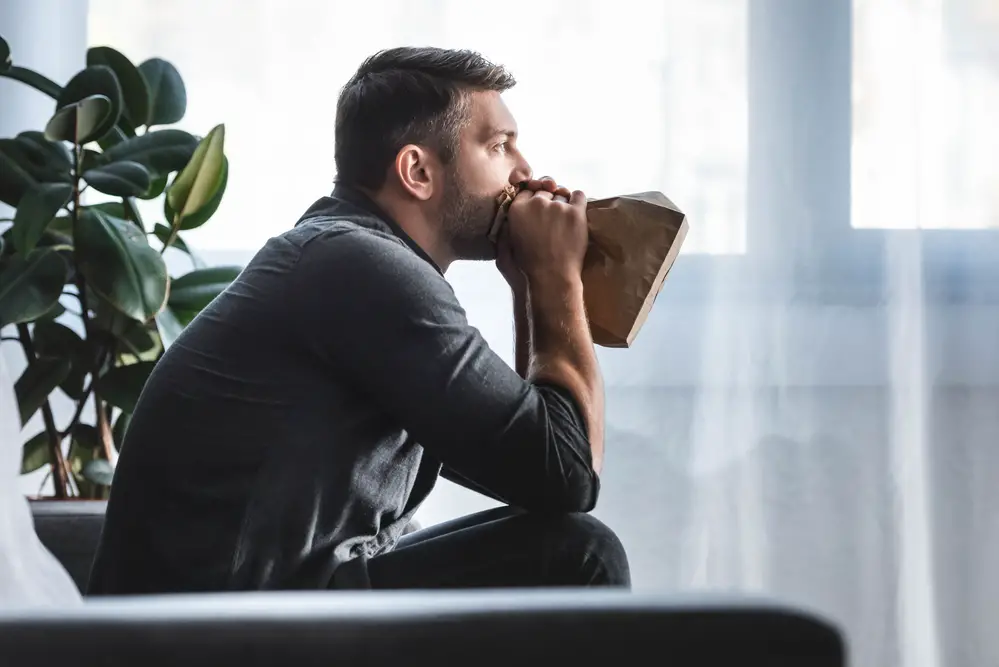 During an anxiety attack, the body enters a state of heightened stimulation. You may feel increased heart rate, shallow breathing, and tense muscles. How to calm anxiety attack? Learn techniques that help counteract the physical symptoms by helping the body to relax and preventing the attack from escalating.
During an anxiety attack, the body enters a state of heightened stimulation. You may feel increased heart rate, shallow breathing, and tense muscles. How to calm anxiety attack? Learn techniques that help counteract the physical symptoms by helping the body to relax and preventing the attack from escalating.
Learn the 54321 Method
Use a grounding technique like the 54321 method, helping your mind and body focus on the present. Calm simplifies it best: Identify five items you are seeing, four you can touch, three sounds, two things you are smelling, and one you can taste.
Acknowledge Your Anxiety Attack
Calm your mind by reassuring yourself that even though it is scary to have an anxiety attack, it’s temporary; it cannot harm you physically, and you can overcome it. These actions give you the self-assurance required to help promote the idea that you are in control and safe.
Use Mindfulness
 Mindfulness techniques like breathing and body scanning can help you quickly bring your thoughts to the present, distancing you from the cause of your anxiety. It plays a significant role in helping promote calmness and control.
Mindfulness techniques like breathing and body scanning can help you quickly bring your thoughts to the present, distancing you from the cause of your anxiety. It plays a significant role in helping promote calmness and control.
Attempt Progressive Muscle Relaxation
Quickly relax your body and mind by practicing progressive muscle relaxation to help calm your anxiety attack. Work through various muscle groups by tensing and relaxing them. Progressive muscle relaxation is an excellent way to calm yourself, and you can practice it anywhere.
Deep Breathing
Deep breathing activates the body’s relaxation response while calming the physiological symptoms of an anxiety attack. Use slow breaths to increase oxygen flow to your organs, helping to calm all the symptoms and your mind.
Get Physically Active
During an anxiety attack, it helps to move around to create a productive outlet for any tension and excess energy you are feeling. Physical activity boosts mood-enhancing chemicals or endorphins in the brain, instilling a sense of calm that provides immediate relief from an anxiety attack.
Have a Calming Mantra
A mantra is a repetitive phrase that can help you during an anxiety attack by redirecting your thoughts and giving you a positive attitude. Your mantra can be any phrase that can soothe and empower you, counteracting anxiety and providing inner peace. For example: “I am not letting fear define me,” or “ I am safe and in control.”
Give Yourself a Splash with Cold Water
The shock of a splash of cold water on your face or wrists will distract you and redirect your focus immediately. It provides relief because it triggers the mammalian diving reflex that disrupts the symptoms and cycle of an anxiety attack.
Use Visualization
Visualization helps you create a mental escape from the thoughts and symptoms caused by an anxiety attack. Whether you prefer to visualize a beautiful beach, a flowing river, or a tranquil garden is up to you, but undoubtedly, it’s an effective way to manage an anxiety attack.
Stopping Anxiety Attacks
Above, you learned several coping skills to calm an anxiety attack immediately. However, knowing how to calm anxiety attacks also requires treating the underlying issues to help minimize them.
 Consider Therapy
Consider Therapy
Therapy is effective for managing and preventing anxiety attacks. With therapy, you learn to identify thoughts and behaviors that trigger anxiety attacks, helping to minimize their frequency. It also provides solutions and coping strategies for managing anxiety symptoms.
The two most common types of therapy that help with anxiety include:
- Cognitive Behavioral Therapy (CBT) has proven very effective in minimizing symptoms and relapses in cases of anxiety. It uses a structured therapeutic approach focused on recognizing and altering adverse thought patterns and behaviors associated with anxiety.
- Exposure Therapy involves exposing individuals to situations and triggers of their anxiety gradually and systematically, effectively desensitizing them and teaching them coping mechanisms.
Daily Meditation
Daily meditation has proven very effective for managing and stopping anxiety attacks. Meditation cultivates mindfulness, teaching you to remain fully present and without judgment at the moment. You learn to focus on your breathing or object during meditation, making you more aware of your emotions and thoughts. With meditation, you can learn to distinguish the signs of anxiety so that you can take the steps to prevent an attack.
Helping Someone During an Anxiety Attack
It’s difficult to see someone you care about having a panic attack, but there are ways to help them:
- Stay calm and let them gently know they are having an anxiety attack.
- Don’t pressure the person to calm down and face their fears because they will feel forced, worsening their anxiety. Instead, listen to them calmly and acceptingly, letting them comfortably pace their recovery. If they want to practice breathing, encourage them to relax, sit somewhere quiet, and focus on it by counting aloud.
- Try to understand more about anxiety and ask them to explain their experience. Knowing how their anxiety affects their daily life and the things that trigger it or improve it can help show empathy and that you aren’t judging them.
- It’s important to ask the person how you can support them in difficult situations. You may ask them how you can help them calm down during anxiety attacks or any other ways you can be helpful. When they know that you are present and able to make them feel safer, it can provide a sense of comfort and reassurance.
- Give them the encouragement and support to seek help.
Read more about how you can look after yourself if you support someone with anxiety or panic attacks in this helpful article from Mind.
Techniques to Calm Down Anxiety Attacks
 Practice the following techniques to calm down when experiencing an anxiety attack:
Practice the following techniques to calm down when experiencing an anxiety attack:
- Practice slow, deep breathing – Try 4-7-8 breathing – inhale( through your nose) while counting to 4, hold your breath for 7 counts, and exhale (through your mouth) as you count to 8.
- Use the 5-4-3-2-1 grounding technique – It helps you refocus by looking at five objects, listening for four sounds, touching three objects, finding two smells, and identifying one thing you can taste.
- Sniff an essential oil – Sniffing lavender flowers or an essential oil will calm anxiety. You should smell it for at least 3 minutes.
- Repeat a mantra – Find an easy-to-remember mantra like “It will pass,” and repeat it until the symptoms of your anxiety attack improve.
Coping with Anxiety Attacks
Lifestyle changes can lessen the occurrence and severity of anxiety attacks because they address underlying factors that contribute to them and prepare you to cope better.
- Decrease your caffeine consumption.
- Maintain healthy eating habits and eat foods that reduce anxiety, including whole grains, fruit, vegetables, legumes, lean meats, oily fish, and beverages like green tea and chamomile.
- Practice good sleep hygiene by prioritizing sleep, sticking to a schedule, and having a dark and comfortable bedroom.
- Spend time outdoors every day.
- Avoid triggers and stressors.
- Have a routine and stick to it.
- Utilize relaxation techniques and partake in regular physical exercise.
- Create a reliable social support structure.
Taking Control of Anxiety Attacks
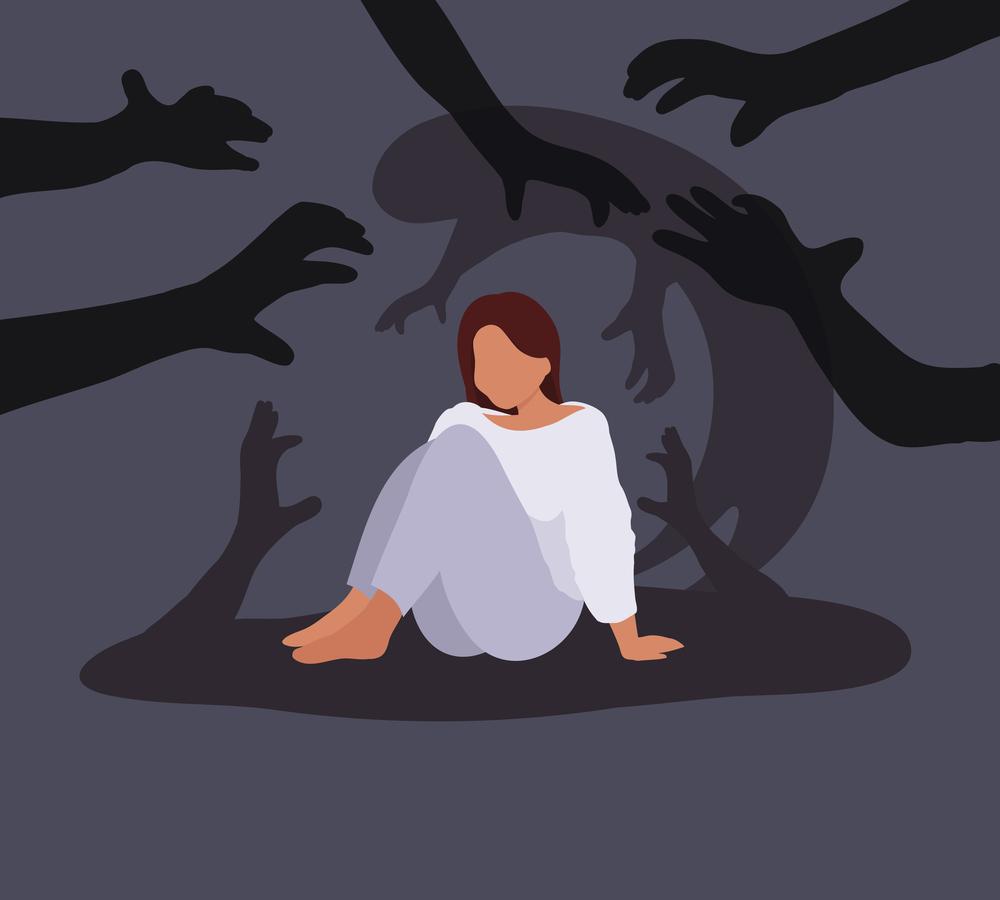 It’s normal for everyone to have some anxiety sometimes. If you want to know how to calm an anxiety attack, it’s best to accept it and try to find ways to deal with the triggers and symptoms. Additionally, avoid stimulants like alcohol and coffee, both known for inducing anxiety.
It’s normal for everyone to have some anxiety sometimes. If you want to know how to calm an anxiety attack, it’s best to accept it and try to find ways to deal with the triggers and symptoms. Additionally, avoid stimulants like alcohol and coffee, both known for inducing anxiety.
Don’t only adopt relaxation, breathing, muscle relaxation, and meditation techniques when feeling anxious, but include them in your daily routine to help release tension.
Anxious thoughts can fill your mind, creating an environment that can trigger an anxiety attack. Find ways to distract yourself when you start to feel an attack coming on. For example, leave the room or find a quiet space to practice counting backward. It’s essential to know how to change your focus if you are experiencing anxiety at night. At night, don’t continue lying in bed; use your favorite technique to distract yourself. For example, visualize peacefulness using the 5,4,3,2,1 method.
Exercise is also a great way to control anxiety. Whether you prefer aerobic, high-intensity yoga, dancing, or a quick walk is up to you. Research also shows that music provides immediate calming effects, so use it to your advantage. And no, it doesn’t have to be classical music; listen to whatever enables you to calm your anxiety.
Additionally, share your feelings with others to ease your burden; you’ll be surprised at some valuable insights people can offer and the support you’ll receive.
Finally, when your mind turns to destructive thoughts, change them to healthier and more rational ones by asking yourself: “Is this a rational or an irrational thought?” It takes some practice to master the questioning and challenging of irrational thoughts, but practice does perfect the technique. Keep a journal to see which thoughts you need to work on most.
Effective Methods for Managing Anxiety Attacks
Anxiety can seriously impact your work, studies, and personal life. There are many effective methods for managing anxiety attacks.
However, it’s best to start at the beginning when wanting to learn how to calm anxiety attacks. There’s an old saying, “Knowledge is power.” It’s very appropriate in many things, including in finding the best way to deal with an anxiety disorder and its inevitable anxiety attacks.
Unfortunately, anxiety wrongly triggers the “fight-or-flight” response meant to help us deal with imminent danger. But you can educate yourself by learning more about the most effective ways to manage your anxiety attacks.
Use all the methods mentioned in the paragraphs above, but also learn to become more assertive, build self-confidence, and learn the valuable skill of structured problem-solving.
When to Seek Emergency Help: Recognizing the Signs
Anxiety attacks, though extremely uncomfortable, are usually not life-threatening. However, it is essential to identify when the symptoms may indicate a more severe condition that requires immediate medical attention. It can be difficult to differentiate between an anxiety attack and a medical emergency, especially since some symptoms may overlap with those of heart attacks or other critical conditions.
Signs That Warrant Emergency Medical Help:
- Chest Pain: If the pain is severe, especially if it’s a new symptom or doesn’t feel like previous anxiety attacks, it could be a sign of a heart attack.
- Difficulty Breathing: While shortness of breath is common during an anxiety attack, if it’s severe, comes on suddenly, or you have a history of heart or lung disease, it’s essential to get it checked out immediately.
- Sudden and Severe Headache: If a headache is the worst you’ve ever experienced or is accompanied by confusion, weakness, or trouble seeing, it could indicate a stroke or other serious condition.
- Uncontrollable Symptoms: If your symptoms are intense and you’re unable to control them with your usual coping strategies, it may be time to seek help.
- First-Time Anxiety Attack: If you’ve never had an anxiety attack before and you’re unsure of what’s happening, it’s better to be safe and get medical attention.
- Thoughts of Harm: If you experience thoughts of harming yourself or others, seek immediate assistance.
What to Do in an Emergency:
- Call Emergency Services: If you or someone else shows signs of a medical emergency, don’t hesitate to call your local emergency number.
- Stay Calm: Try to stay as calm as possible. If you’re with someone experiencing severe symptoms, reassure them and stay with them until help arrives.
- Provide Information: Be ready to provide information about the symptoms, any known medical conditions, medications being taken, and any recent changes in health.
- Don’t Drive: If you’re experiencing severe symptoms, driving yourself to the hospital is unsafe. Wait for an ambulance, or have someone else take you.
Remember, it’s always better to err on caution regarding health. If in doubt, seek professional medical advice. Health professionals are there to help you through these moments and can provide the appropriate care and support needed during such events.
Using Technology to Manage Anxiety: Harnessing Digital Tools for Peace of Mind
In our modern world, technology offers myriad resources that can assist in managing anxiety. You can access tools and support systems that were once out of reach from the palm of your hand. This section will introduce you to a selection of apps and online resources that can be powerful allies in your journey to manage anxiety.
Guided Meditation Apps
Meditation has been shown to reduce stress and anxiety, and there are numerous apps available to guide you through the process. Apps like Headspace and Calm offer a variety of meditation sessions, including ones designed explicitly for anxiety relief. These sessions can range from a few minutes to longer periods, fitting easily into your daily routine.
Online Counseling Services
For those who find it challenging to attend in-person therapy sessions, online counseling services like BetterHelp and Talkspace provide access to licensed therapists via text, voice, or video calls. This can be particularly useful for individuals with busy schedules or those who prefer the privacy of their own home.
Anxiety Tracking Tools
Tracking your anxiety can be beneficial in understanding your triggers and patterns. Apps such as Moodfit and Sanvello allow you to record your mood, anxiety levels, and what you were doing at the time, helping you and your healthcare provider to identify trends and triggers over time.
Breathing Exercise Apps
Breathwork is a simple yet effective way to alleviate anxiety. Apps like Breathe2Relax and Breathing Zone instruct you on various breathing techniques, guiding you through exercises that can help calm your nervous system when you’re anxious.
Cognitive Behavioral Therapy (CBT) Apps
CBT is a highly effective treatment for anxiety, and apps like CBT-i Coach and Quirk offer CBT-based tools to help you challenge and change negative thought patterns. These apps often include exercises you can work through at your own pace.
Relaxation and Sleep Apps
Since anxiety can often interfere with sleep, apps that promote relaxation and better sleep can be helpful. Relax Melodies and Sleepio offer soothing sounds, bedtime stories, and sleep tracking to help you create a more conducive environment for rest.
Virtual Reality (VR) for Anxiety Relief
VR technology is being explored for its potential to manage anxiety, with apps providing immersive environments that can help users practice relaxation and mindfulness. While this requires specific VR equipment, it’s an exciting area of development in anxiety management.
Social Support Networks
Platforms like 7 Cups provide a space to anonymously connect with trained listeners and community members who understand what you’re going through. Sometimes, just knowing you’re not alone can make all the difference.
Educational Resources
Websites like Anxiety and Depression Association of America (ADAA) offer a wealth of information on anxiety disorders, including articles, webinars, and self-help tools.
Before integrating any new technology into your mental health routine, it’s always a good idea to discuss it with a healthcare provider, especially if you’re currently undergoing treatment for anxiety. They can help ensure the digital tools complement your plan and provide the most benefit.
By leveraging these technological resources, you can gain more control over your anxiety, track your progress, and find support whenever you need it. As technology continues to advance, the possibilities for managing anxiety and improving mental health become increasingly accessible and diverse.
Finding Relief from Anxiety Attacks
How to calm anxiety attack? Luckily, finding relief from anxiety attacks is not too difficult if you understand more about it and are willing to look after your physical health and practice all the techniques mentioned above.
To break away from anxiety, you need to take several steps. These can include talking to a trustworthy person, managing your worries, keeping a journal to spot patterns, finding support from peer groups, seeking mental health therapy, and using alternative therapies. These include breathing exercises, yoga, aromatherapy, meditation, hypnotherapy, and massage are some of the ways you can learn to relax, offering relief from anxiety and its effects.
Fixing anxiety and managing its symptoms doesn’t happen overnight. Some of these hacks will instantly help you manage an anxiety attack, while others will help you manage your overall anxiety over time. Embrace the ones that help you most, and don’t give up looking for other effective solutions.
- 7 Ideas to Help You Relax and Unwind on a Family Vacation - April 27, 2025
- How Having Cybersecurity Protection Helps You Relax - April 25, 2025
- 8 Reasons Why Spending Time Outside Calms You Down - April 25, 2025
This site contains affiliate links to products. We will receive a commission for purchases made through these links.

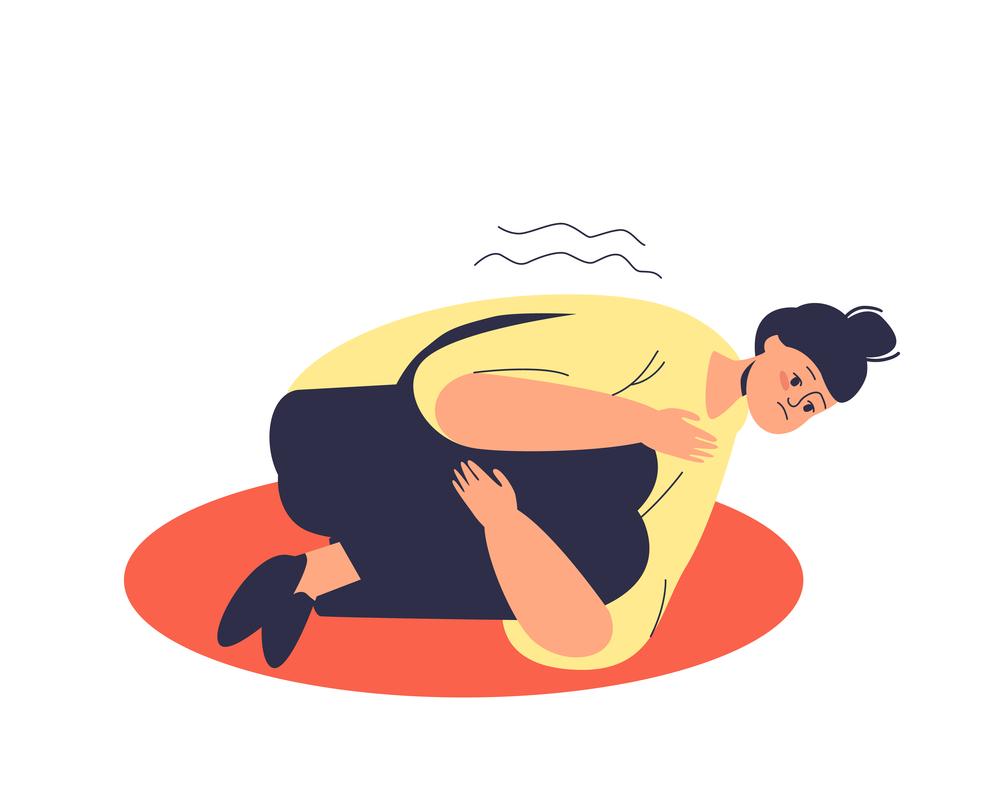
 Consider Therapy
Consider Therapy
